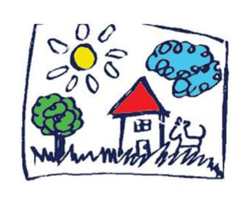“The child’s thinking is neither more limited nor inferior to that of an adult. It is different. In our thinking, images are faded, ragged, emotions dull and dusty. The child thinks with feelings and not with the intellect. That is why communication is so complicated, why there is no more difficult art than speaking to children.”
(Korczak, How to Love a Child, 1914)
- The School at the Children’s Home took upon itself to operate according to the educational dialog principle that recognizes the importance of discourse founded on honor and trust. The children of the Children’s Home who suffer from their initial trauma of poor relations and have buried within themselves the image of parental figures as protectors find it difficult, rather naturally, to resolve the internal paradox that takes place when the Children’s Home attempts to impart well-being to them. This counters the traumatic memories of the injuries they suffered. In the therapeutic environment dealing with complex children and families with multiple problems, the continuum of ideas bridging education and therapy is an important guideline. The professional discussion exists between all the people involved with the child. The task of these professionals is to successfully bring out the uniqueness of the child, their strengths, personal characteristics, and hidden ambitions. The School can be seen as a total environment for the child’s life – a therapeutic surrounding and a place where the children can free themselves of their past, with the aid of the staff. Our therapeutic point of view is directed to understanding the mental processes and figuring out, through them, the special needs of each child.
We are a large and varied staff of professionals working together. Each age group has a social worker responsible for directing the personalized programs that have been drawn up and thought out, both at the therapeutic level and the systemic level including retaining a strong connection with parents and with the social services of the community that sent the child to us.
Each therapeutic team includes a psychiatrist, psychologist, and a therapist who employs the animals in the petting zoo. In addition, there are therapists employing martial arts, physical psychotherapy, art therapy, and both students of social work and educators with a therapeutic background. Every professional staff member is briefed both separately and as part of the group in all the details of the work concerning each child.
Our therapeutic work with the parents is at the top of our preferences. A child’s success when he leaves his family and joins the Children’s Home has a lot to do with the parents’ attitude towards the child’s “new home”. Parents are always welcome to visit and are invited to participate in all events involving the child: parent’s day, birthday parties, and other special events. The warm and respectful attitude enables the children to work out the conflict in which they are immersed due to their complex family connections.
Also, over the years we have developed expertise in dealing with children who have no real family to fall back on or to return to. We operate the “Village Home” during vacation periods during the entire year as a solution for children who do not return to their families. These children with no family to fall back on or to return to are linked with host families who have received training and open their homes to host these children.
- Activities connected with therapy
The majority of children in the Children’s Home receive individual therapy.
Group therapy – Once a week each age group holds a meeting. Therapeutic tools have been developed by our staff as part of a special model for creating a dialog among equals in a group.
Special groups are set up employing animal therapy to welcome new children and aid them in adapting to the Children’s Home.
A therapeutic group, called the “Farewell group” exists for 12th grade students about to graduate high school and leave the Children’s Home.
There is a therapeutic petting zoo with therapists who carry out numerous activities: Group and individual psychotherapy is practiced, groups called “trustees of the petting zoo” exist and are managed by the professional in charge of the petting zoo, group activities during evening hours “ good night activities to put the animals to sleep”, and connection between children and specific animals so they take responsibility for the well-being of the specific animals.

